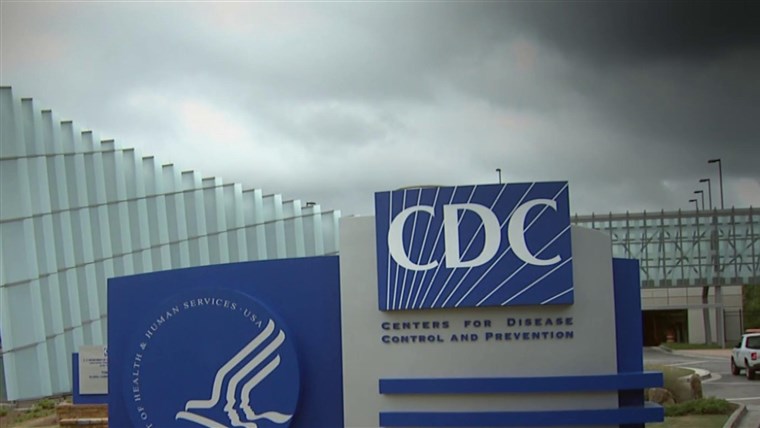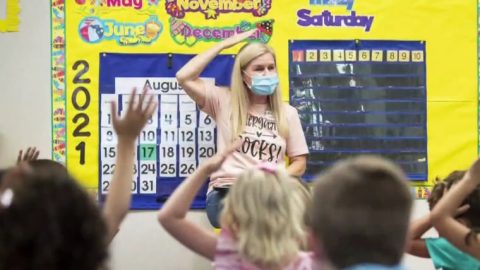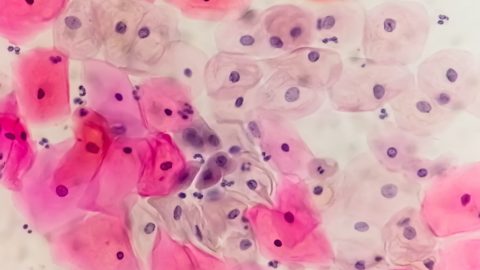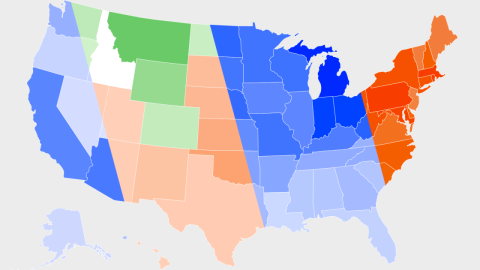The Centers for Disease Control and Prevention is “keeping a close eye” on Covid-19 cases in fully vaccinated people, agency Director Dr. Rochelle Walensky said Thursday during a hearing before the House Select Subcommittee on the Coronavirus Crisis.
On Thursday morning, the CDC said it had reports of approximately 5,800 so-called breakthrough infections, out of the nearly 77 million individuals in the United States who have been fully vaccinated.
Full coverage of the coronavirus outbreak
Such cases are not unexpected; no vaccine is 100 percent effective against infection with the coronavirus. Even so, they are rare, and experts tell NBC News the data are largely reassuring.
“This is a really good scenario, even with almost 6,000 breakthrough infections,” said Tara Smith, a professor of epidemiology at the Kent State University College of Public Health in Ohio. “Most of those have been mildly symptomatic or asymptomatic. That’s exactly what we were hoping for.”
In an emailed statement, a CDC spokesperson said the majority of people with breakthrough infections were not hospitalized, and 29 percent had asymptomatic infections.
In addition, 65 percent of the cases were in women, and just over 40 percent were in people ages 60 and up. Seven percent of people were hospitalized, and 74 people died.
The data are not publicly available yet, but the CDC expects to start publishing information on breakthrough infections on its website regularly starting Monday. The agency also plans to collect additional data on the cases, including demographics, vaccine type, variant type, location and the amount of time since the individuals had completed their vaccinations.
“We are reaching out to all of our state health officials, as well as to our hospitals,” Walensky said.
Patient demographics that might explain an increased risk for breakthrough infections largely remained unclear Thursday. The CDC declined to provide additional clarity on the cases, including whether the patients had other risk factors, such as compromised immune systems, or whether they continued mitigation measures post-vaccinations, such as wearing masks.
“I would like to know information about their clinical symptoms, whether these people are getting sick from Covid, and whether that’s actually the cause of their hospitalization or their death,” said Dr. Colleen Kelley, an associate professor of infectious diseases at the Emory University School of Medicine.
It’s also unclear why asymptomatic individuals were tested for Covid-19 after being fully vaccinated. It could be that some employers, such as health care systems, require regular testing. What’s more, many hospital systems still have a protocol to test for Covid-19 for any hospitalization, such as heart attacks or routine inpatient procedures.
“We’ve seen a few breakthroughs ourselves,” Kelley said. “Oftentimes, they don’t have much in the way of symptoms, and are hospitalized for other reasons.”
“If you’re asymptomatic and you are vaccinated, you would not be likely to be presenting to get tested,” said Bill Hanage, an associate professor of epidemiology at the Harvard T.H. Chan School of Public Health. As such, the number of breakthrough infections reported to the CDC is “probably an underestimate.”
People are considered fully vaccinated two weeks after they receive their second dose of a two-dose vaccine, such as the Pfizer-BioNTech or the Moderna vaccines, or two weeks after a single dose of the Johnson & Johnson vaccine. (Use of the Johnson & Johnson vaccine is currently paused in the U.S. as federal health officials investigate cases of rare blood clots linked to the shots.)
Download the NBC News app for full coverage of the coronavirus outbreak
In clinical trials, the Pfizer and the Moderna vaccines were found to be around 95 percent effective against Covid-19, and the Johnson & Johnson vaccine was 72 percent effective against moderate-to-severe illness in its U.S. trial.
Still, how well the vaccines work in the real world can differ from the clinical trial results. A CDC study published in March found that the Pfizer and the Moderna vaccines were about 90 percent effective against infection, based on real-world data.
Vaccination remains critical to ending the pandemic.
“It’s a way of taking the pandemic and transforming it from a terrible, ghastly, unmanageable problem, into a manageable problem,” Hanage said.
“It does not reduce the risk to nil, but it does reduce the risk to something that we can handle.”











Recent Comments